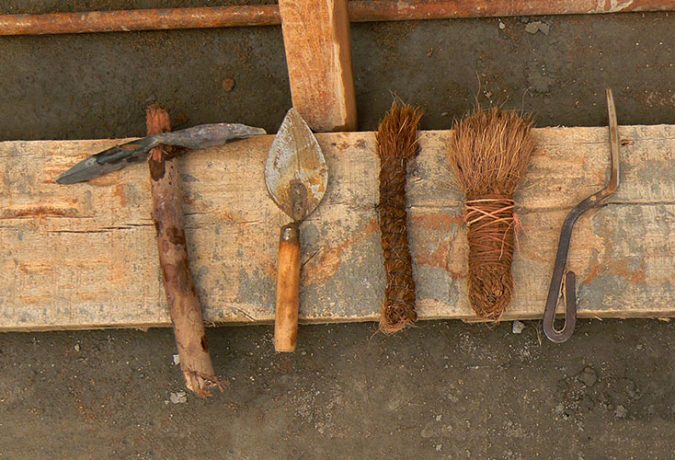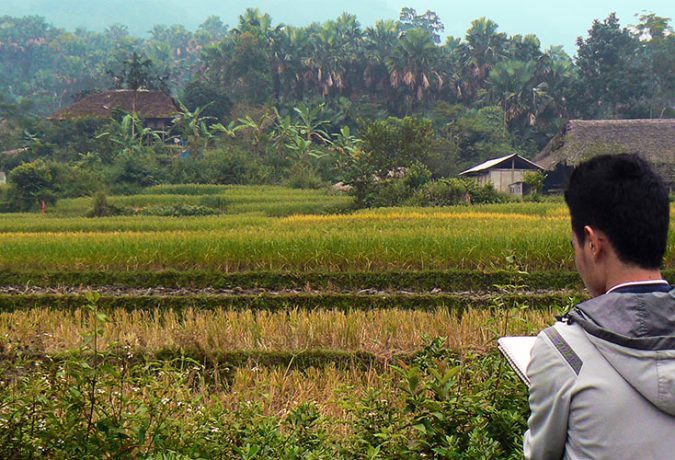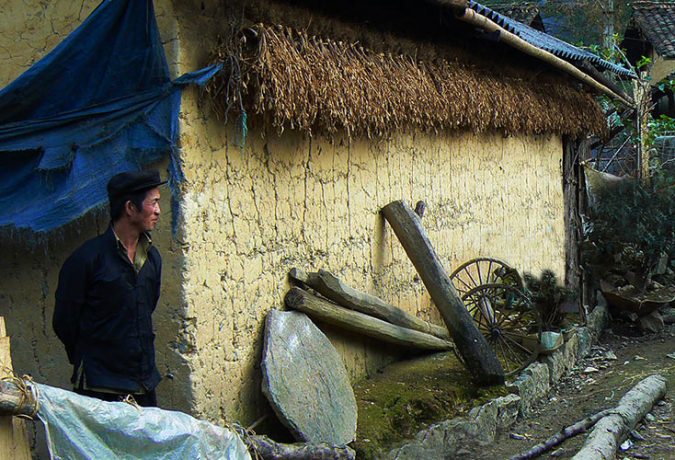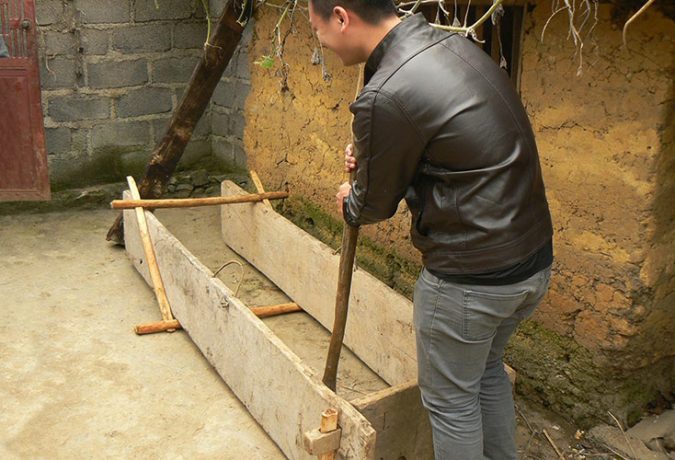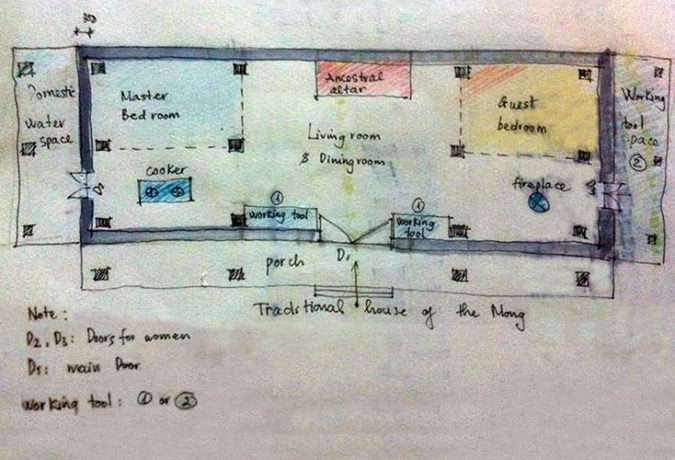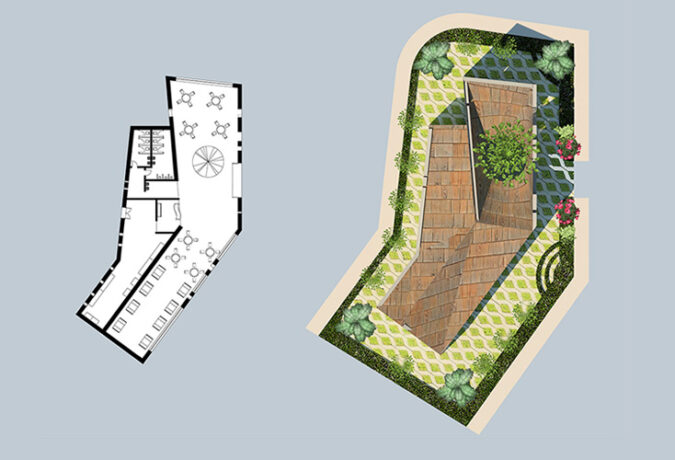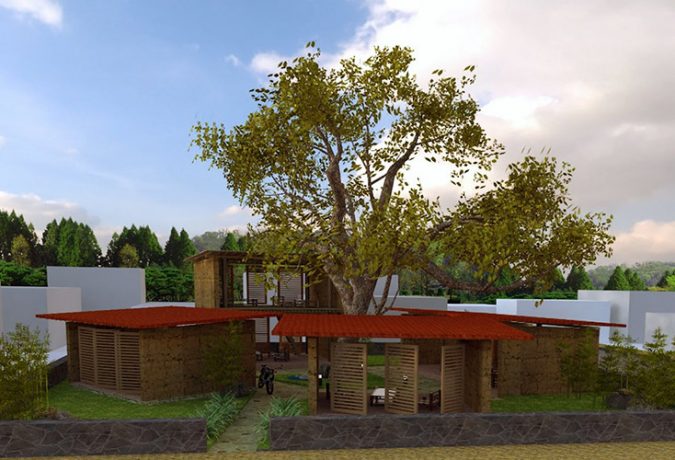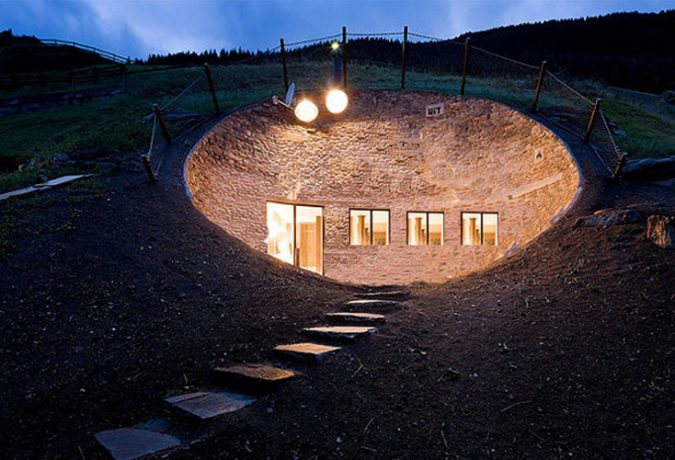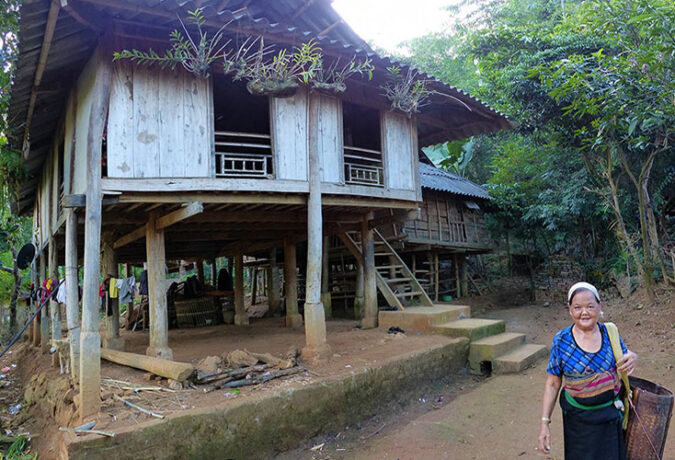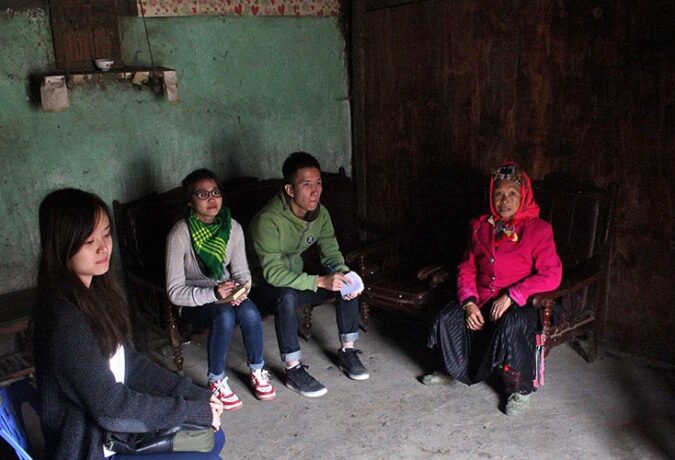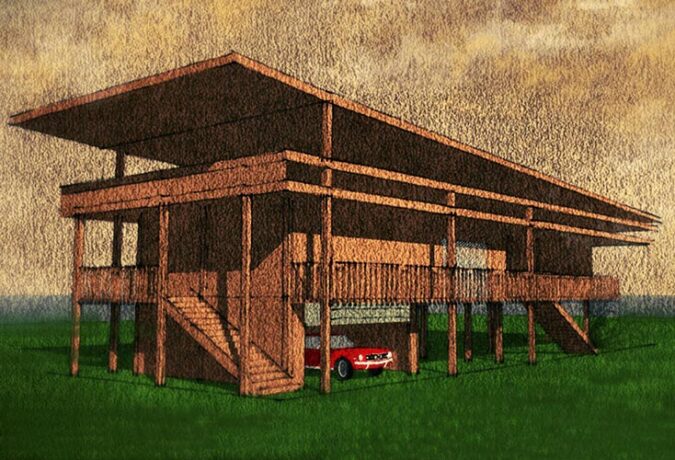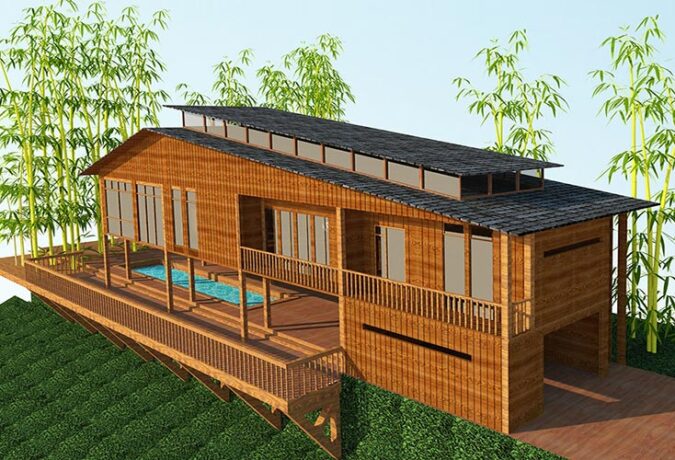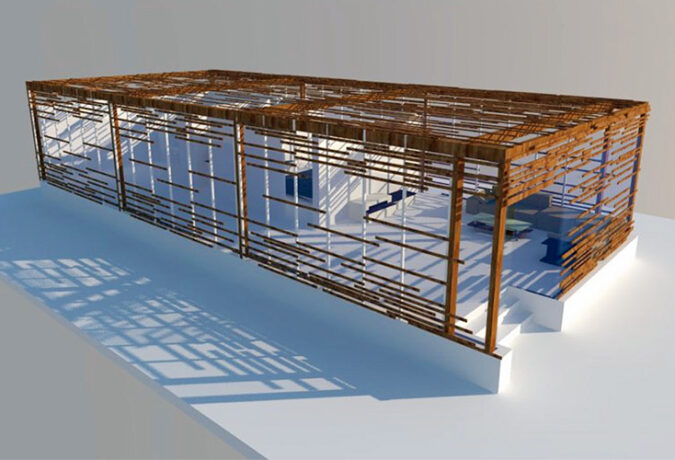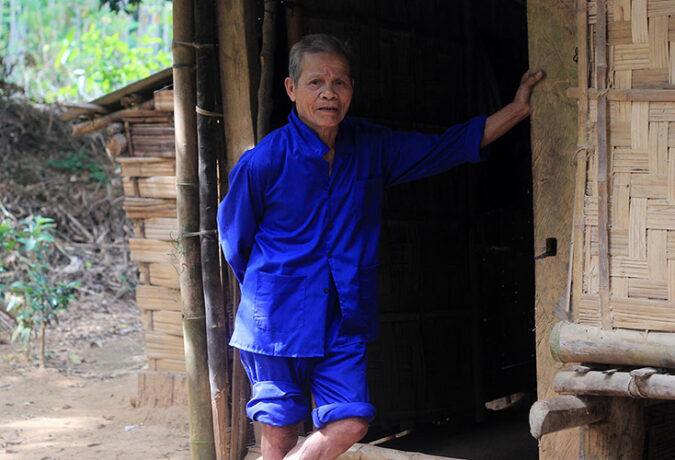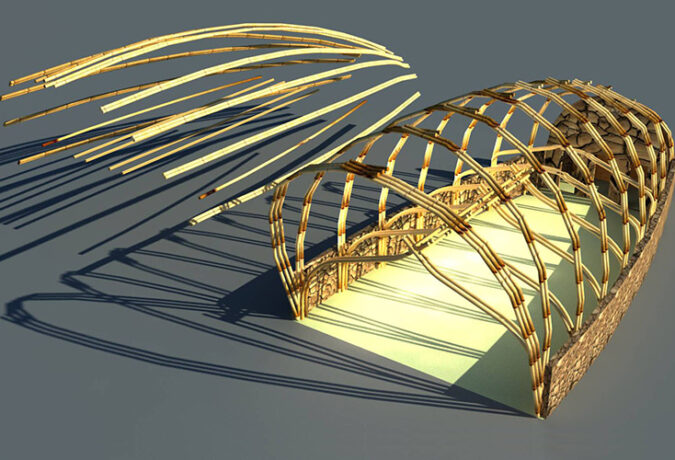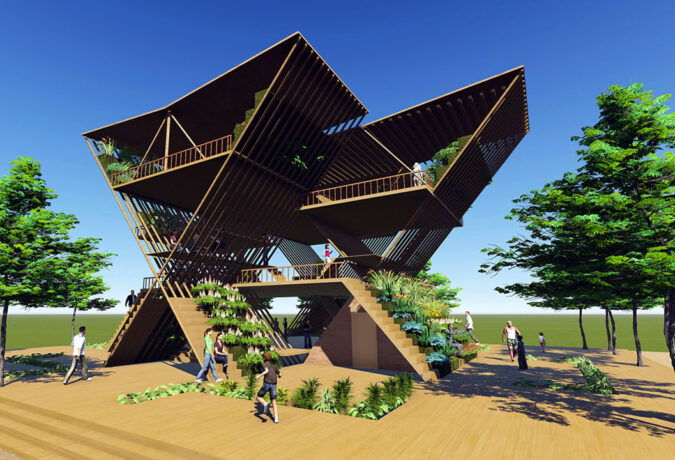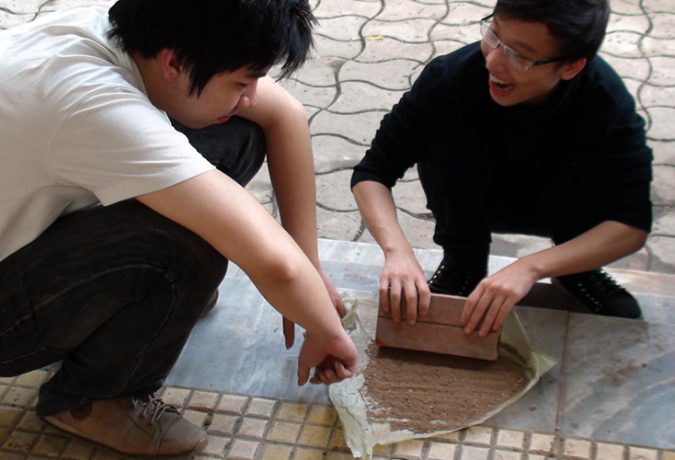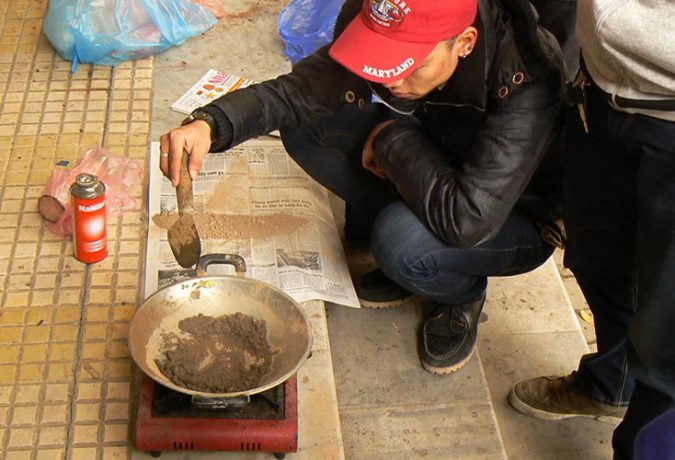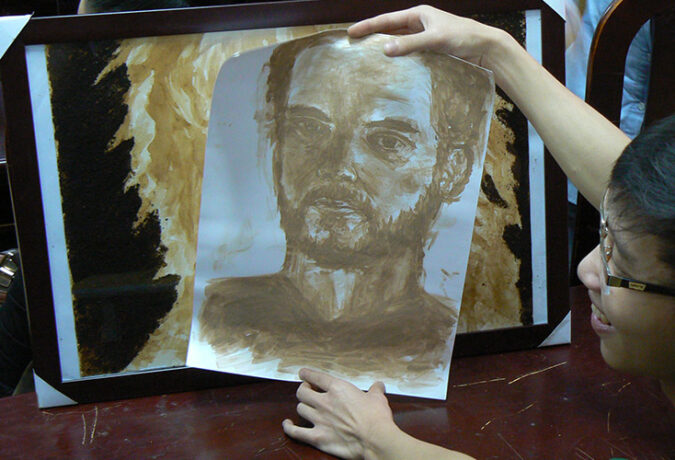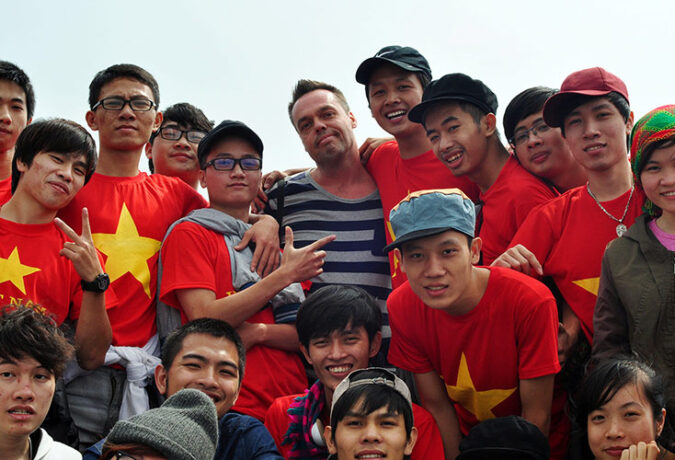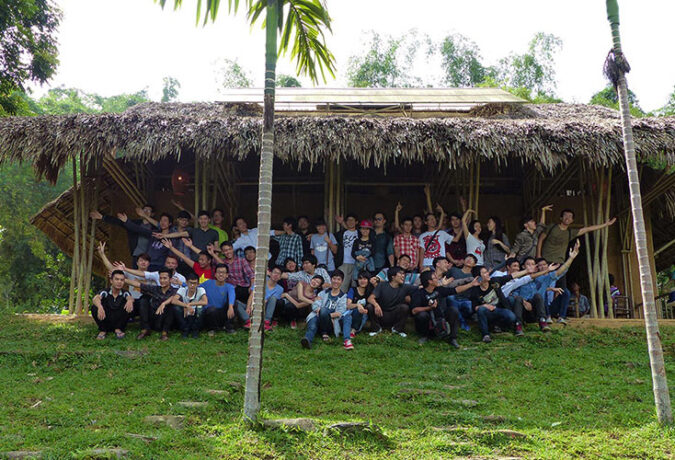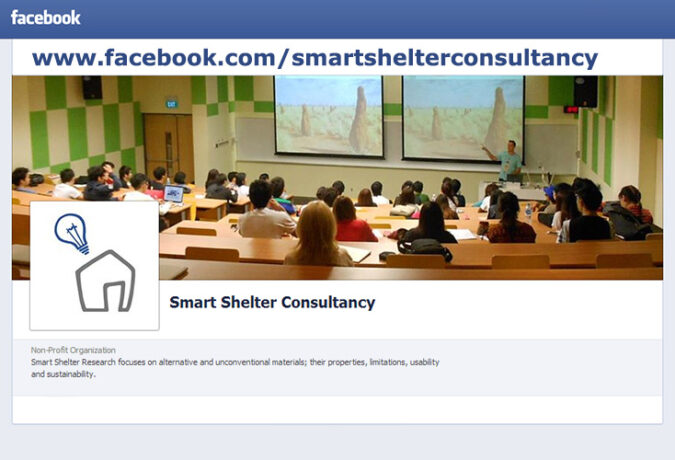Design Workshop: Alternative Construction
Description of Workshop
| Topics: | earth architecture, soil recognition, building with bamboo, low-cost & low-tech construction |
| Disciplines: | architecture, civil engineering |
| Type: | design assignment with lectures |
| Hands-on: | soil recognition and soil testing |
| Field Trip: | highly recommended |
| Duration: | 1,5 week including field trip, easy to extend |
| Combinations: | emergency architecture, the art of upcycling |
Alternative Construction – we need to use less carbon-intensive materials!
It is not always necessary to use materials such as brick, steel, concrete and glass, which have a high gray energy. This inspiring program of lectures, design workshops and hands-on experiments will lead to a better understanding of sustainable architecture and alternative building techniques.
Participants will be asked to investigate typical wood, earthen and stone settlements, preferably in their own region. They will research what has been done in the past and what can be done today in terms of architectural features, climatic design, structural safety, and so on.
Using their newly acquired knowledge of materials and techniques, students will be asked to design a small project of their choice, such as their own house, café, store, or gallery. The project will be set in the urban context of their own living environment.
We strongly recommend scheduling a field trip and encouraging students to research local architecture and traditional building techniques. They’ll later incorporate this information into their designs.
Aims and Outcomes
The goal of this workshop is to create awareness and enthusiasm for alternative building techniques and sustainable design. It will open students’ minds and encourage them to use unconventional materials and solutions.
By engaging with traditional and local architecture, participants will reconnect with their past. They’ll will discover that some of our ancestors’ solutions weren’t so bad… which may lead them to revisit certain materials and techniques in their future work.
Although the design assignments focus mainly on the situation in developing countries and disaster-prone areas, all solutions are also applicable to contemporary and high-end architecture.
Proposed Lectures and Timetable (example, field trip included)
#1. Introduction about the work of Smart Shelter Foundation and explanation of the design assignments to the participants. (30 minutes
#2. Building with Earth; An overview of 12 different construction types and examples of vernacular earthen architecture worldwide. (2 x 1 hour)
#3. Case Study; Building a school in India with Earth Blocks; Complete story from design phase, to making blocks and masonry in a small village. (1 hour 15 minutes)
#4. Building with Bamboo, examples from all over the world. (1 hour)
#5. Wastewide Architecture; Inspiring examples from all over the world, of artists, designers and architects that use secondary materials in their work. (3 x 45 minutes)
#6. Soil Identification; How to recognize different types of soils and how to modify them for certain construction uses. Includes soil testing assignment. (1/2 day)
#7. Closedown; future projects of Smart Shelter Research. (20 minutes)
| Morning Program | Afternoon Program | |
|---|---|---|
| Day 0 | Field trip (optional) | Field trip (optional) |
| Day 1 | #1 Opening + spaghetti challenge Explain assignment |
#2 Building with earth Start design work |
| Day 2 | #3 Case study India Work on design |
#4 Building with bamboo Work on design |
| Day 3 | #5 Wastewide architecture Work on design |
Work on design |
| Day 4 | #6 Soil identification Soil testing assignment |
Work on design |
| Day 5 | Finalize presentations of all work | #7 Closedown (optional new assignment) |
Possible Extensions and Combinations
Since this workshop format is quite intensive, we recommend that you consider extending the program for an additional week. This is easily done by adding elements of the following formats:
- Design workshop; Emergency Architecture (click here)
- Hands-on experience; The Art of Upcycling (click here)
- Field trip; to make it even more realistic.
If you would like us to make a custom-made proposal, please send us a request by filling in the contact form.
